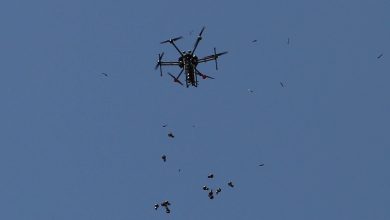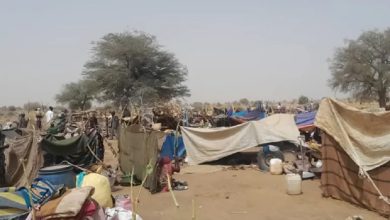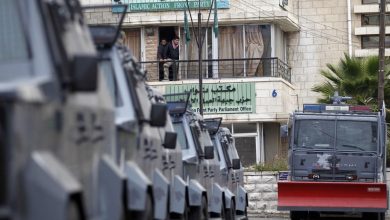Qatar Presses On with Mediation, Rejects Israeli Claims, and Ramps Up Efforts to End Gaza War
Doha Rejects Israeli Claims, Stresses Mediation Efforts with Egypt and the U.S. to Halt Escalation and Address Humanitarian Crisis.

Watan-Qatar continues its efforts to end the Israeli war on Gaza, denying Israeli claims that it paid money to reduce Egypt’s role in the mediation. Doha considers these claims mere maneuvers by parties in Tel Aviv who seek to escalate violence against Palestinian civilians. This comes as Cairo announces new ideas, and Washington reaffirms its desire to end the fighting in the besieged Gaza Strip.
So far, Qatar plays a key role alongside Egypt and the United States in mediation efforts that led to a ceasefire agreement at the start of 2025. That agreement was later undermined by Tel Aviv, which resumed attacks and war on Gaza, resulting in more victims, the vast majority of whom are civilians—particularly women and children—and further worsening the living conditions in the besieged territory.
Qatari Emir Sheikh Tamim bin Hamad Al Thani contacted French President Emmanuel Macron to discuss key regional and international developments of mutual interest, particularly the situation in Gaza and the occupied Palestinian territories. The call reaffirms Doha’s continued role in mediation. It followed a similar call in early February, shortly after a ceasefire took effect in Gaza—an agreement that Israel violated by resuming the war on March 18.
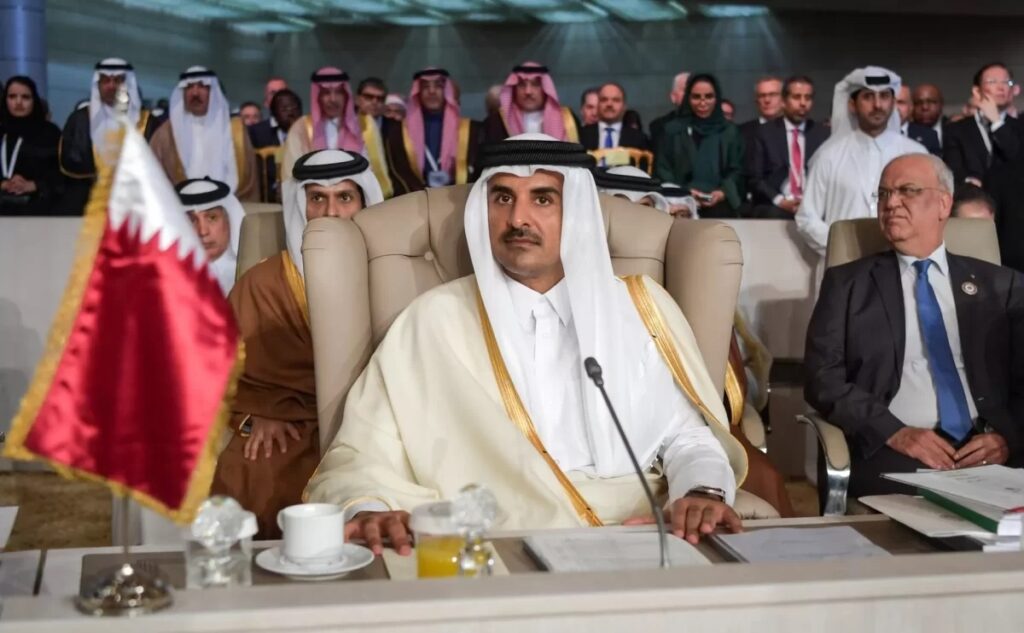
Qatar remains committed to mediation efforts in coordination with the United States and regional partners. The Qatari Emir has recently held numerous calls with world leaders as part of his country’s drive to end the Israeli war on Gaza. Qatari diplomacy is moving in all directions to reduce tensions and defuse crises triggered by Tel Aviv’s decisions that have derailed previous peace efforts.
In Doha, various diplomatic and technical movements are underway aimed at ending the war on Gaza. Numerous officials, mediators, and specialized teams are currently present in the Qatari capital, quietly monitoring developments, working to bridge gaps, and seeking to defuse the ongoing crisis.
According to diplomatic sources, key ideas and proposals are being exchanged through official channels and policy-making centers. These efforts underscore the growing consensus that mediation is the only viable path to resolving the crisis. Experts have noted that influential Western think tanks are conveying messages warning that Israel’s military actions—alongside the displacement plan reportedly backed by Washington—risk widespread consequences, not only for Palestinians but for Israel itself.
A report by Agence France-Presse detailed Qatar’s prominent role as a regional and international peace mediator seeking to resolve entrenched conflicts. Experts praised Qatar’s intensive diplomatic efforts as a hallmark of its foreign policy. The report noted Doha’s deep involvement in recent months in difficult negotiations between the Israeli occupation and Hamas to halt the aggression on Gaza. These efforts reflect Qatar’s firm commitment to ending suffering and establishing regional stability.
For Qatar, mediation is not just a diplomatic tool but a core political pillar reflecting its vision for a peaceful world. Doha prioritizes dialogue and preventive diplomacy, making it a trusted haven for warring parties seeking solutions. It continues working toward strategic results despite attempts to obstruct its efforts.
Qatar Denies Allegations, Reaffirms Commitment to Gaza Mediation
Qatar has strongly denied reports from Hebrew and Western sources suggesting it paid money to sideline Egypt’s mediation role, calling such claims baseless and an attempt to undermine diplomatic efforts. It condemned media accusations of undermining Egypt or any mediator in the Hamas-Israel mediation process. Qatar considers these allegations part of a deliberate disinformation campaign aimed at sabotaging mediation efforts and straining relations between brotherly nations, while distracting from the ongoing humanitarian crisis and politicizing the war.
Doha warns against falling into schemes that aim only to derail mediation and worsen the suffering of the Palestinian people. Qatar continues moving in all directions to end the suffering of Gaza’s population, provide basic needs, and shield them from the war of extermination they are facing. Behind the scenes, officials are preparing action plans on multiple fronts to reach diplomatic solutions without neglecting the dire humanitarian situation caused by Israel’s war.
Humanitarian and relief leaders are meeting in Doha to explore ways to ensure aid delivery. Qatar is also hosting a global academic conference that brings together university presidents from around the world, including representatives from Gaza and the occupied Palestinian territories, to discuss the situation and highlight the war’s devastating impact on the foundations of life. The event underscores the need for unified international efforts to secure dignified living conditions for Gaza residents while working to end the war and prevent further deterioration.
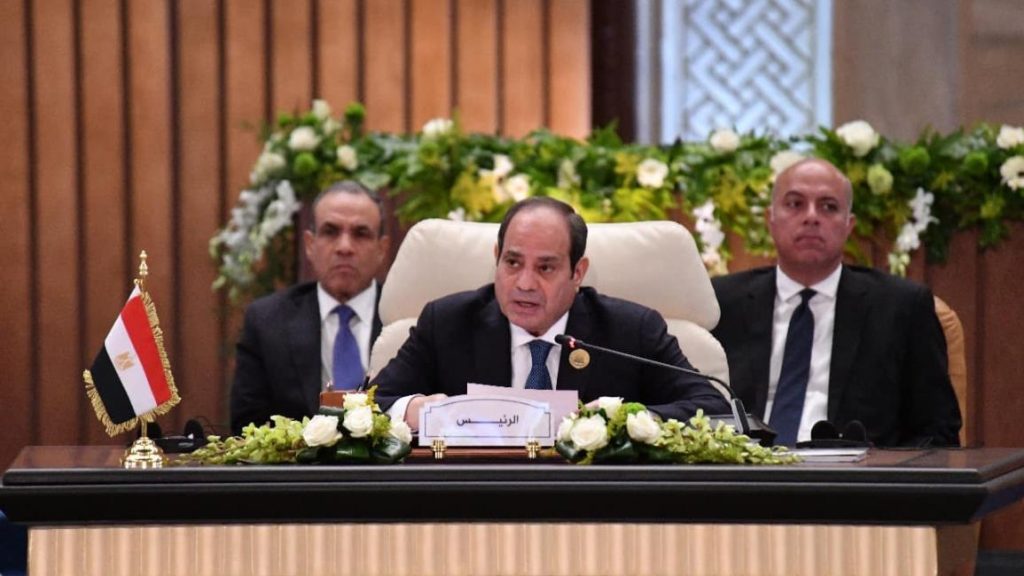
New Egyptian Proposal
Alongside Qatar’s efforts, many countries are coordinating to end the Israeli war on Gaza and alleviate the suffering of its people.
Hebrew media reported that Israeli Prime Minister Benjamin Netanyahu’s government received a new Egyptian proposal for a hostage and prisoner exchange with Hamas to end the war.
The proposal includes a ceasefire in Gaza lasting between 40 and 70 days, followed by negotiations on the second and third phases of the original agreement. It also includes returning eight Israeli hostages alive—including Israeli-American soldier Aidan Alexander—and the remains of eight others. The proposal involves releasing Palestinian prisoners held by Israel, reopening the Netzarim Corridor, allowing displaced Gazans to return, and ensuring humanitarian aid delivery. The second phase of the agreement would be discussed with mediator guarantees.
Despite this, Israeli authorities continue to show no intent to end the war and proceed with military efforts that have worsened the humanitarian crisis. Israel refuses to consider any deals that include a commitment to end the war.
This refusal comes amid growing public protests in Tel Aviv against the government’s escalation policies. New groups within Israeli civil and military sectors have joined calls demanding an end to the war. Around 100 Israeli military doctors signed a letter urging the return of hostages and an end to the war. Members of the elite Unit 8200 in military intelligence also issued a similar statement, as did 2,000 university professors, joining air force and navy personnel who previously voiced the same demands.

Trump’s Comments
Former U.S. President Donald Trump expressed his desire to end the war in Gaza, saying: “I’d like to see the war in Gaza stop.” Speaking at a press conference after meeting Israeli Prime Minister Netanyahu at the White House, he confirmed ongoing efforts to reach a new ceasefire agreement: “We’re working hard to reach another ceasefire deal in Gaza.”
Trump also reiterated his plan for the United States to “control” Gaza, calling it a “great piece of real estate.” He stated: “As you know, having a peacekeeping force like the United States there, controlling and owning Gaza, would be a good thing. Because all I’ve been hearing for years and years is killing, Hamas, and problems.”
Trump went on to say he would call Gaza a “Zone of Freedom” after removing Palestinian citizens—an open endorsement of forced displacement. He first unveiled this controversial plan (to expel Gaza’s population) during Netanyahu’s previous visit to Washington in February, which sparked widespread criticism.



